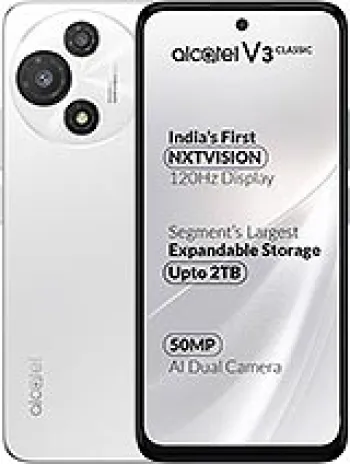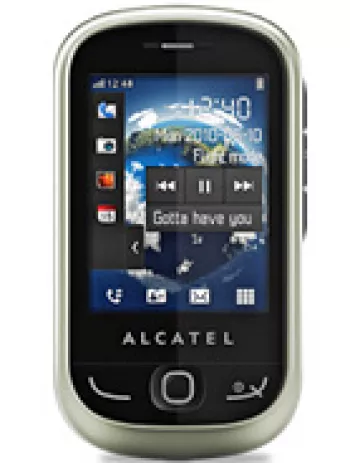
Introduction to Alcatel OT View db
The Alcatel OT View db is a noteworthy mobile phone that was introduced in the year 2000, marking a significant step in the evolution of mobile technology in the early 2000s. Even though the device has been discontinued, its unique features and specifications made it a potential choice for many users at the time. In this article, we will delve into the comprehensive analysis of the Alcatel OT View db, exploring its design, specifications, and impact on the market.
Design and Build
The Alcatel OT View db was designed with a classic and robust structure, measuring 133 x 54 x 25 mm, possessing a volume of 142 cc, which made it slightly bulkier compared to contemporary mobile phones. It weighed 150 grams, which was considered lightweight for a device of its capabilities during that era.
The phone was equipped with a Mini-SIM slot, supporting GSM 900/1800 network bands. This design choice was common for devices during this time, emphasizing simplicity and functionality over modern aesthetic considerations.
Display
The display of the Alcatel OT View db was among the notable features, offering a monochrome graphic appearance with a resolution of 96 x 64 pixels. The screen was capable of displaying 5 x 15 characters in a 3:2 ratio, allowing users an unobtrusive and straightforward approach to viewing information.
Its monochrome display was a key element in ensuring that the device had a longer battery life since it consumed less power compared to color displays.
Network and Connectivity
As a feature phone, the Alcatel OT View db was limited in terms of connectivity options. It operated on a GSM network with no support for GPRS or EDGE technologies. The absence of these features highlighted its purpose as a basic communication device rather than a multimedia or internet-focused phone.
Additional connectivity features such as WLAN, Bluetooth, and USB support were also not included, reflecting the technological limitations and user requirements of that period.
Battery and Power Management
The device was powered by a removable NiMH battery with a capacity of 650 mAh. Despite its small capacity by today’s standards, the battery was efficient enough, providing up to 130 hours on standby and up to 4 hours and 45 minutes of talk time.
This performance was practical for users who needed a reliable phone for calls and texting, devoid of the power-hungry features found in more modern devices.
Sound and Alert Features
Although the sound capabilities of the Alcatel OT View db were minimal, it did include monophonic ringtones and a loudspeaker for audio alerts. The lack of a 3.5mm headphone jack reflected its basic use case, mainly oriented around voice calls and simple notifications.
Messaging and Features
SMS (Short Message Service) was the primary method of text communication, with limited phonebook and messaging storage capabilities. The phone did not support internet browsing, gaming, or Java applications, emphasizing its role as a basic communication tool.
Additional features like alarm clocks and basic clock functionalities were included, enhancing its everyday practicality for users without needing complex applications.
Memory and Storage
Memory features were rudimentary, with no option for a card slot to expand storage. The device stored basic call records and allowed users to keep track of 5 dialed, received, and missed calls. This limitation highlighted the early-stage development of mobile technology during its release time.
Market Impact and Legacy
The Alcatel OT View db served as a stepping stone in mobile communication technology, providing essential services to users across various demographics. While it lacked the advanced features of smartphones today, its simplicity, durability, and efficiency were well-received by users.
The device was available in colors Jade and Obsidian Black, reflecting a modest design but sufficient for user appeals.
Conclusion
In conclusion, the Alcatel OT View db stands as a testament to the early advancements in mobile phone technology. Its focus on communication and essential functions, combined with robust construction, made it a preferred choice for users looking for reliability and simplicity in communication.
Although the features and design may appear outdated today, at the time, it provided valuable insights and lessons for the development of subsequent mobile devices, shaping the future of mobile communications.
Key Features of Alcatel OT View db
- GSM Technology supporting 900/1800 bands
- Compact dimensions: 133 x 54 x 25 mm, weighing 150 g
- Monochrome graphic display with 96 x 64 pixels resolution
- SMS messaging support
- Built-in loudspeaker with monophonic ringtones
- Battery Stand-by time up to 130 hours and Talk time up to 4 hours and 45 minutes
- Available in two colors: Jade and Obsidian Black
Drawbacks of Alcatel OT View DB
- No support for GPRS or EDGE, limiting mobile internet capabilities.
- The phone has been discontinued and is no longer supported by the manufacturer.
- The monochrome display is limited to 96 x 64 pixels resolution.
- There is no expandable memory option with a card slot.
- Lacks a camera, which is a standard feature in modern phones.
- No 3.5mm headphone jack, limiting connectivity for audio devices.
- Doesn't support Bluetooth or WLAN, limiting wireless connectivity options.
- Not equipped with a radio or positioning features like GPS.
- Limited call record storage—only 5 dialed, received, and missed calls each.
- The alert system is restricted to monophonic ringtones only.
- No USB support to connect with other devices or for charging convenience.
- No sensors or advanced features seen in modern devices.
- Lacks games and Java support for additional applications or games.
- Short battery life with only up to 4 hours and 45 minutes of talk time.
View Also
More Phones
All Rights Reserved +14268 Phones © Mobilawy 2025

























